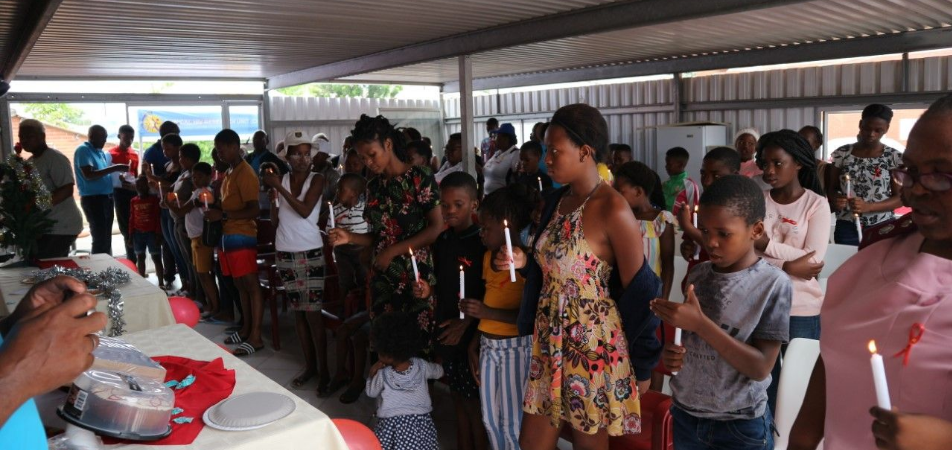The community advisory board (CAB) at the King DinuZulu Hospital in Durban, South Africa joined the STREAM trial in 2015. The CAB was formed from the union of the INK CAB and the Umlazi CAG, both of which worked on trials in the Durban area before STREAM. In November 2011, the INK CAB and Umlazi CAG joined forces to prepare for STREAM and later became the current CAB at King DinuZulu Hospital.
The CAB is coordinated by the King DinuZulu hospital Executive CAB, which consists of eight members, and has over twenty active members. The diversity of the CAB is a key strength. Its members are drawn from a wide range of local organizations, including community-based non-profit organizations (NPOs), religious groups, high schools, traditional healers associations, the Department of Health and other important stakeholders.
The Durban CAB became involved in STREAM with the goal of improving TB services available to the community and helping to stop the spread of TB. The CAB’s main objectives are:
- To conduct TB community outreach programs and TB education
- To become a primary liaison between the community and all TB stakeholders, including health facilities, NGOs, and CBOs that are active in the fight against TB
- To support national and provincial TB control programs at the community level
- To work towards improving TB services at local facilities
- To provide important information and support to TB patients
- To build strong relationships and a sense of trust between the community and TB health service providers
South Africa’s KwaZulu Natal Province is a hotspot of multidrug-resistant TB (MDR-TB) and where the first documented outbreak of XDR-TB occurred. Improving treatments and outcomes at the hospital is therefore important.

The Durban STREAM CAB aims to contribute to improving MDR-TB treatments and outcomes by bridging communications between the community and the trial site. Community members appreciate that the CAB can communicate their experiences to the hospital study team, and ensures the community remains informed about STREAM developments.
Community engagement (CE) at the Durban site is helping to build relationships of trust among researchers and community stakeholders, ensuring that damaging misconceptions about TB and research don’t arise. The CAB’s knowledge of key stakeholders and community dynamics is an important strength that helps ensure communities have a meaningful voice in TB research in Durban.
The Durban site will be among the first STREAM sites to complete Stage 2 of the trial in early 2021 and, therefore, it is already focused on mapping out its future. One key aspect of sustainability is establishing the CAB as an independent non-profit organization. The CAB believes this NPO status will improve its access to new grants and donors. In addition, becoming an NPO should improve the CAB’s professional recognition by important stakeholders, creating new opportunities for collaboration and partnerships.
Since its inception in 2008, the King DinuZulu CAB has become an important voice for the communities where it works and has worked to build its credibility among local stakeholders. Establishing the CAB is an NPO is an exciting next step for the CAB, which looks forward to continuing its CE work as an independent legal body in the future.
